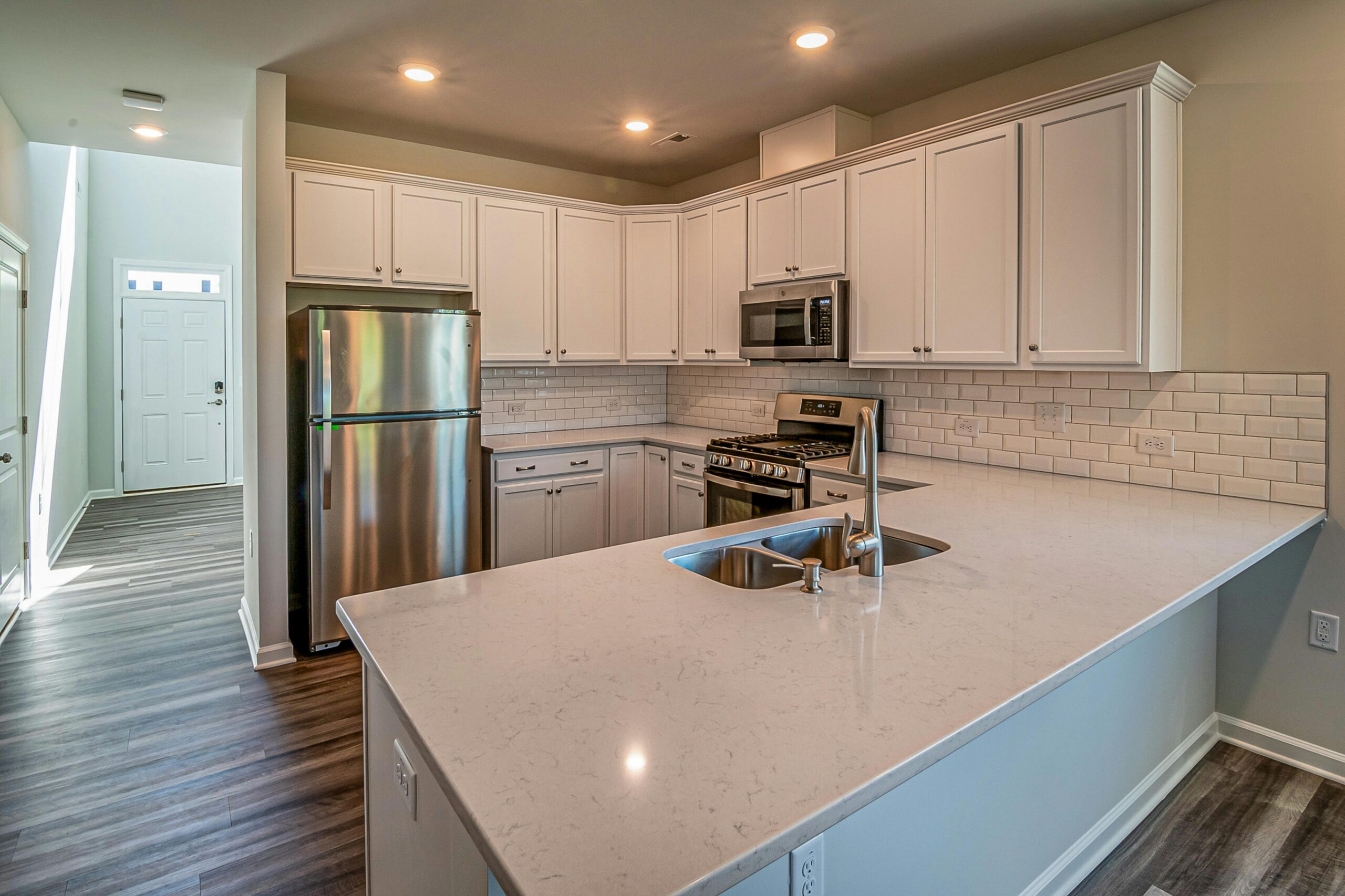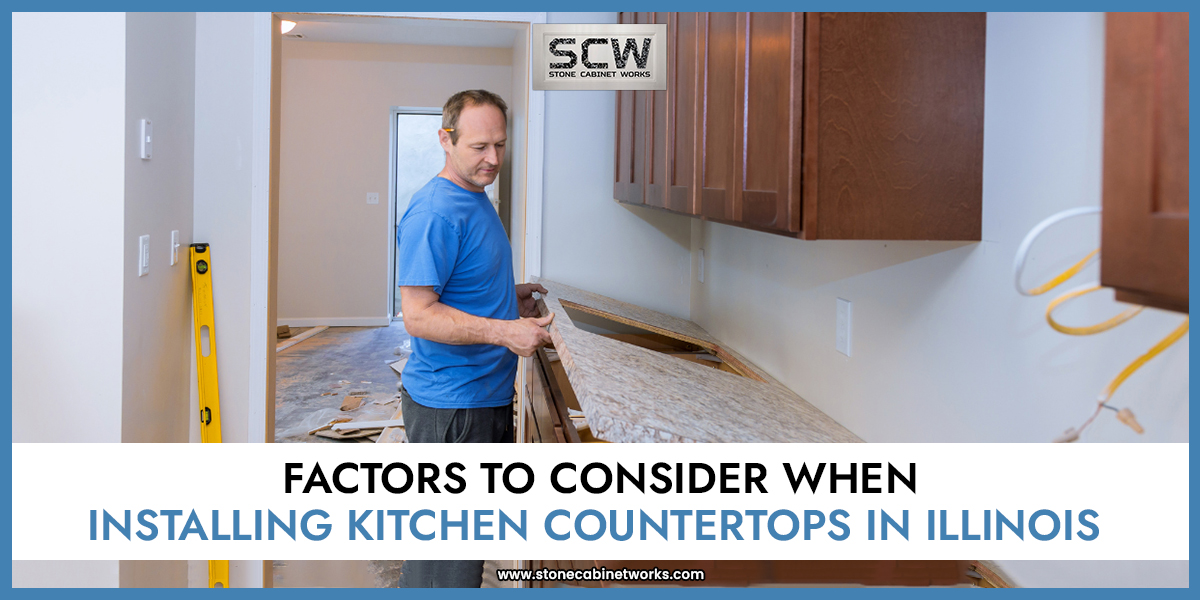When it comes to installing kitchen countertops in Illinois homes, several crucial factors need to be considered to ensure a successful and satisfying kitchen renovation. Selecting the best countertop according to your needs is crucial to create a vibe that attracts eyes and offers you an enjoyable cooking experience. Read on this blog to know some factors that you should consider before installing your kitchen countertops.
Factors to Consider Before Installing Kitchen Countertops
1. Setting a Realistic Budget
Planning your budget is the first step in any home renovation project. Countertop costs can vary widely based on materials, installation methods, and additional features. It’s essential to include not just the cost of the materials but also labor, installation supplies, and potential unforeseen expenses. Also, consider the required maintenance of the countertop that you select for your kitchen to make a budget-friendly choice for the future.
2. Select the Right Material
The choice of material significantly impacts both aesthetics and functionality. Consider factors like durability, maintenance requirements, aesthetic appeal, and cost when selecting your countertop material. Common kitchen countertop options include:
-
Granite
Granite is known for its durability and heat resistance. Installing a granite countertop can add value to your kitchen. It is a popular choice but requires professional installation due to its weight and complexity.
-
Quartz
Quartz is engineered for durability and low maintenance. It also offers a wide range of colors and patterns. Quartz can provide the aesthetic of marble veining and helps to stand out in a kitchen.
-
Laminate
A budget-friendly option that is lighter and easier to install, making it suitable for DIY projects but does not lasts long.
3. Kitchen Layout
The layout of your kitchen especially in Illinois homes plays an important role in determining the size and shape of your kitchen countertops. Measure existing kitchen spaces accurately and consider how the new countertops will fit around sinks, appliances, and cabinets. A well-planned layout enhances both functionality and flow within the kitchen.

4. Evaluate Functionality
Before selecting the countertop for your kitchen, think about how you use your kitchen daily. If you often cook food, you might need larger or more durable surfaces for food preparation. Additionally, consider adding features like an island or additional counter space for multitasking activities.
5. Understand Installation process
Different countertop materials have varying installation processes. That’s why it is crucial to get professional help instead of choosing DIY. Professional installations are generally quicker due to expertise but come at a higher cost.
6. Preparation Work
Preparation work includes removing old countertops, ensuring cabinets are properly leveled, and preparing the area for new countertop installations. Adequate preparation can prevent delays during installation.
7. Maintenance Needs
Different countertop materials require different types of care. For instance, granite needs periodic sealing to maintain its appearance, while quartz is generally more resistant to stains and scratches. Understand how much time and effort you are willing to invest in maintaining your countertops.
8. Aesthetic Appeal
Your kitchen countertop should complement the overall design theme of your kitchen. Consider colors, patterns, and textures that will enhance your space’s aesthetic appeal while reflecting your personal style.
Conclusion
Installing new kitchen countertops in Illinois involves careful consideration of various factors including budget, material selection, kitchen layout, installation processes, maintenance needs, aesthetic appeal, functionality, etc. By addressing these elements carefully, you can create a beautiful and functional kitchen space that meets your requirements for years to come.


